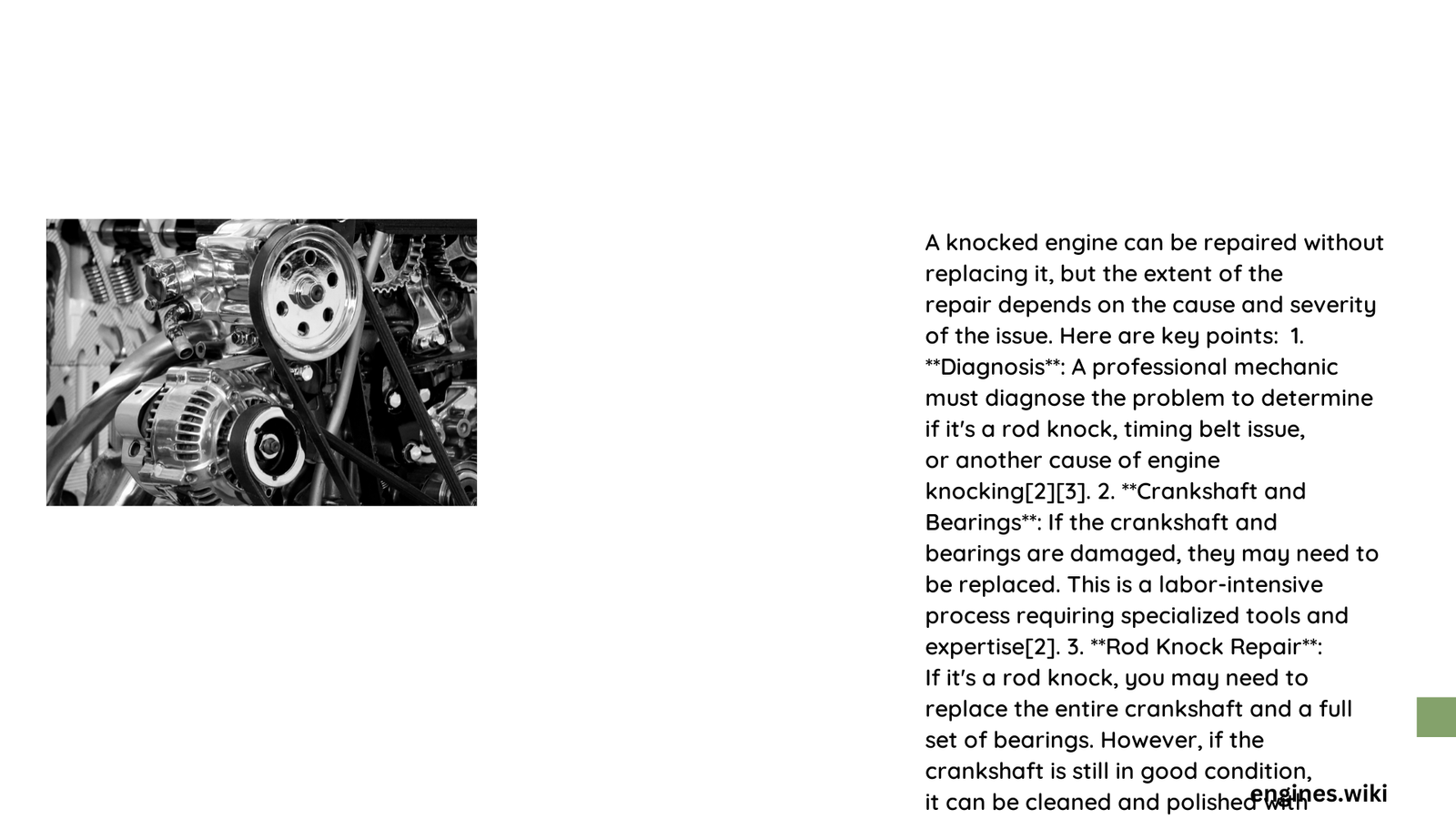Engine knocking represents a critical mechanical issue that can potentially devastate your vehicle’s performance. While complete engine replacement might seem like the immediate solution, skilled mechanics and automotive experts reveal that strategic repairs can restore engine functionality without total replacement. Understanding the precise cause, assessing damage extent, and implementing targeted interventions can save substantial repair costs and extend your engine’s operational lifespan.
What Causes Engine Knocking?
Can Worn Bearings Create Knocking Sounds?
Worn engine bearings frequently generate knocking sounds by allowing excessive metal-to-metal contact. These components support rotating shafts and enable smooth mechanical movement. When bearings deteriorate, they create clearance variations that produce distinctive metallic knocking noises.
Key Bearing Wear Indicators
- Metallic scraping sounds during acceleration
- Reduced oil pressure readings
- Visible metal particles in engine oil
- Increased engine temperature
How Do Lubrication Issues Contribute to Knocking?
| Lubrication Factor | Impact on Engine |
|---|---|
| Low Oil Level | Increases friction and component wear |
| Poor Oil Quality | Reduces protective lubricant properties |
| Contaminated Oil | Accelerates internal component degradation |
What Diagnostic Steps Reveal Engine Knock Severity?
Professional Assessment Techniques
- Comprehensive compression test
- Detailed oil analysis
- Visual component inspection
- Advanced diagnostic scanning
- Precision measurement of bearing tolerances
Can Specific Components Be Repaired?

Repairing Versus Replacing Engine Components
Certain engine components can be successfully repaired without complete engine replacement:
- Bearings: Replacement is often possible with minimal machine work
- Pistons: Can be replaced individually with proper cylinder wall preparation
- Connecting Rods: Might be reconditioned depending on damage extent
What Repair Strategies Minimize Replacement Costs?
Cost-Effective Repair Approaches
- Targeted component replacement
- Precision machining of damaged surfaces
- Strategic bearing rehabilitation
- Comprehensive lubrication system restoration
How Expensive Are Potential Repairs?
Estimated Repair Cost Ranges
- Basic bearing replacement: $500 – $2,000
- Piston and ring replacement: $1,000 – $3,000
- Comprehensive engine reconditioning: $2,500 – $5,000
Critical Considerations Before Repair
What Factors Determine Repair Feasibility?
- Extent of mechanical damage
- Vehicle’s overall condition
- Repair cost versus replacement
- Long-term performance expectations
When Should Complete Replacement Be Considered?
- Extensive crankshaft damage
- Multiple critical component failures
- Repair costs exceeding 50% of vehicle value
- Structural engine block compromise
Preventive Maintenance Strategies
How Can Future Knocking Be Prevented?
- Regular oil changes
- High-quality lubricant selection
- Timely component inspections
- Addressing minor issues promptly
- Following manufacturer maintenance schedules
Technical Recommendations
Expert Repair Protocol
- Conduct comprehensive diagnostic assessment
- Identify specific knock source
- Develop targeted repair strategy
- Execute precision component replacement
- Perform post-repair validation testing
Final Technical Insights
Repairing a knocked engine without complete replacement requires meticulous evaluation, specialized technical knowledge, and strategic intervention. While not universally applicable, targeted repairs can restore engine functionality and extend operational life when executed correctly.
